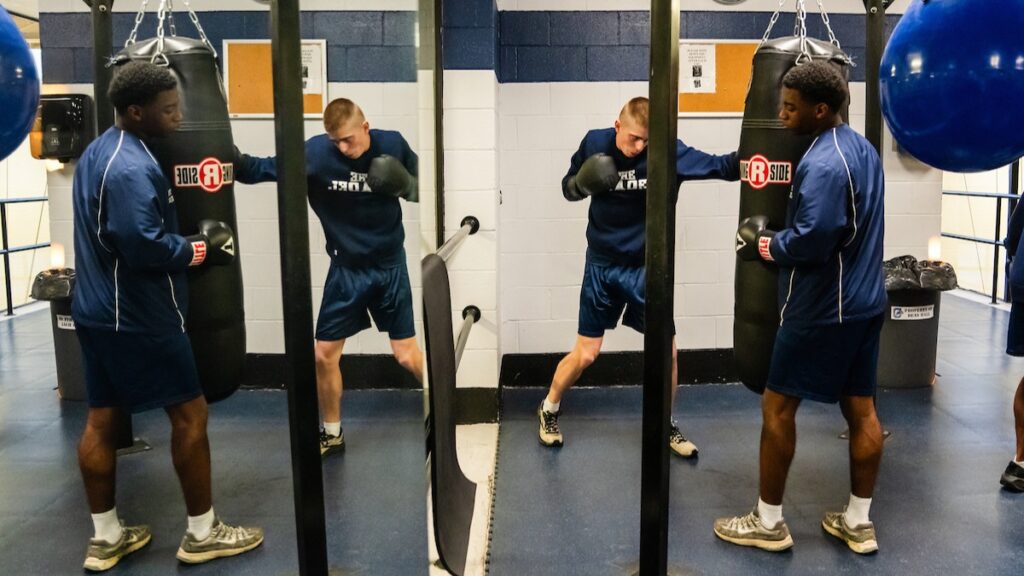
The Citadel Boxing Club is no stranger to discipline, perseverance and resilience — values that their late coach, Richard “Rich” Chen, instilled in them. A former Army Ranger, Coach Rich was more than just a coach; he was a mentor, a leader and a father figure to the cadets who trained under him. Though his sudden passing in January while awaiting a kidney transplant left a deep void in the club, his legacy lives on in every punch thrown and lesson learned.
“He was the most brilliant coach I’ve ever had the pleasure of working with. Sometimes when I’m training, I still hear his voice telling me to work harder — he’d always say that. It was a hard loss, very unexpected, so it’s been tough. We all know he’s up there looking out for us though, and we know he’ll be watching us fight,” said Cadet Ethan Mack, a junior who’s been involved in the club for the past three years. “He was just the most brilliant boxer I’ve ever met in my life. Getting compliments from him was the best thing, because he was always hard on you. He was Special Forces, so just a real tough guy. But if he told you that you did something right, you knew you did something right.”
Another lesson the cadets learned from Coach Rich? The small details are the most important.
“He taught me a lot about footwork, technique, the basics. He wanted to teach us all so we could eventually pass it down, too. A lot of the one-on-one lessons I had with him were making sure I had good foot placement, had my hips under me, that sort of thing. Everything I learned from him, I’m going to remember and pass on to other people,” said Mack.
Cadet Chris Vego, captain of the Boxing Club, spoke about the influence Coach Rich had on every person he interacted with.
“Even for the short amount of time he was there, he made a big impact on us, especially the knobs. He had this saying — ‘There’s no such thing as tough. There is only trained or untrained.’ That’s what’s been in our minds since he passed. He helped structure how we would run practices and would help new people get on board pretty quickly. Coach Rich means a lot to us,” said Vego. “He told us that whatever grit and resilience you have in boxing, you can always have in life. That carries on for us.”
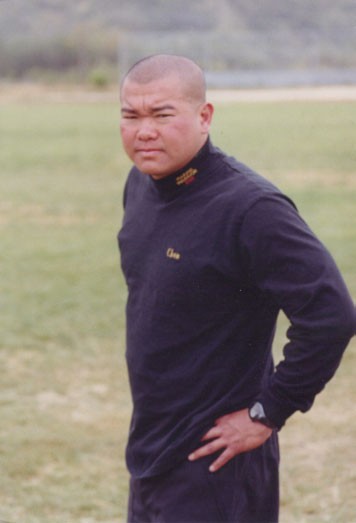
As the club moves forward, it carries Coach Rich’s lessons with them — both in the ring and in life. From refining their footwork to developing the mental toughness needed to succeed in the sport, Coach Rich’s guidance continues to shape the club’s future. To honor his legacy, the club has officially been renamed the Richard Chen Boxing Club, ensuring that his impact will be felt for generations to come. Coach Rich transformed the club, and his teachings will continue to be the standard.
“We have kept the exact same training structure as Coach Rich taught us. We also have his sayings that we’ll always remember; I’m going to write them all down in a notebook to pass down to every president so they know the foundation of the club, where it all came from,” said Cadet Terrell Johnson, president of the Boxing Club. “Some of us can still hear Coach’s voice in the back of our heads, telling us to hit harder, hit faster. That structure he built and taught us, I don’t think it will ever go away.”
Coach Rich’s influence went beyond boxing techniques, though — it shaped the way his fighters approach life. His life partner, Allison King, spoke to the kind of man he was outside of the boxing ring.
“He was not a man focused on toughness. In fact, most people were not aware of his Special Forces background. He loved music and was a lifelong student of philosophy and so many other martial arts. Boxing was a way for Rich to communicate to his students about leadership, conflict resolution, body awareness, ego, connection, confidence, hard work and dedication to something bigger than yourself,” said King. “Above all, he instilled the essential ideas of training, trust and teamwork. He cared so deeply about the wellbeing of his fighters and would have sacrificed anything for them.”
For these cadets, boxing is more than just an outlet for them — it’s shaping their Citadel experience.
Part of every cadet’s life at The Citadel is learning how to maximize your time as efficiently as possible — a skill that the Boxing Club has quickly learned. Mack, a mechanical engineering major who is no stranger to extensive studying and homework, says that while it’s difficult, it’s worth it. Vego agreed, saying that it requires a lot of planning ahead and that, especially for the knobs in the club, it helps with physical fitness.
“Being part of the Boxing Club really helps with discipline and time management. Right now, we are training for six hours a day. We have a lot of freshmen involved, and I know it’s helped a lot of them with discipline. Coach Rich was really big on that — big on discipline, hard work and dedication. It’s helped so many cadets develop those skills and to become better men, women and role models in the Corps,” said Mack.
While a majority of their practices take place on campus, the Boxing Club also has the support of Ethos Athletic Club, a nearby gym that allows the group to practice sparring and glovework. Johnson said using Ethos’s space is a good opportunity to help them work on individual skill sets and replicate how they’ll fight in the ring.
“When we go to Ethos, it’s almost like that’s where the competition starts within the team. We’re in there for self-improvement — we can’t hold back on each other because if we did, we’d go into fights unprepared. Going to Ethos reminds me of something Coach Rich would say to us, ‘In times of crisis, you don’t rise to the challenge, but you rise to the level of your training,’ and I take that to heart when we’re there,” said Johnson. “I don’t want to leave anything in the ring. When I go I into that ring, I’m going to give it my all, win or lose, because I know I put all my passion and hard work into that match.”
Boxing as a sport can be misunderstood. It’s easy to think it’s just throwing punches, but there’s much more to it.
“I don’t think people realize the amount of hard work that goes into it. It’s not just going out there and swinging for the fences. Coach Rich was big on fundamentals, bringing you back to the basics. Like for me, I had boxed before and had some bad habits I had to break,” said Mack. “In the fall, there were two months of four-hour practices with him just doing footwork — it takes a lot of commitment and dedication. It’s the small details that make a fighter.”
For Vego, he believes one of the biggest misconceptions about boxing is that you won’t get hit.
“You can’t go into boxing thinking you’re not going to get hit. A lot of people want to do it for the fitness aspect, but the reality of boxing is that you’re going to get hit and it’s going to hurt. You have to learn how to be like, ‘Okay, I got hurt, but I’m going to keep going,’” said Vego. “Boxing isn’t for everybody, but it’s something that will push you in every way. It’s 50% physical, 50% mental.”
While Vego focused on the physical toll of boxing, Johnson emphasized the artistry behind the sport.
“People limit boxing to a barbaric sport. That it’s just hitting somebody else. But I think of boxing as a work of art. It’s a dance, almost. The footwork has to be coordinated enough for you to get around the other person. Everything is strategically planned out. A jab takes a lot of work to land, not everybody can do it. It’s brutal, but it’s art,” said Johnson.
Even though their practices quite literally involve punching each other, Vego said there’s never any hard feelings.
“There’s absolutely a sense of camaraderie within the club. I could punch Mack in the face and go eat with him 30 minutes after. It’s that type of bond that we have with boxing. We can trash talk, we can throw punches at each other, and be completely fine five minutes later,” said Vego.
Johnson described the club as a family and how its members will talk to him about anything.
“There’s still a power dynamic, but it’s almost family-like. We are close knit and look out for each other, even though we are competing against each other at the end of the day. We’re all athletes, we’re all boxers. It’s a one-on-one sport, but it can also be a team sport. A personal win is a win for the whole team,” said Johnson.
One of the proudest moments that Vego has had in the club was when he started his role as team captain near the end of his junior year. Reflecting on the last four years, Vego said this moment stands out because it’s when they began to figure out leadership, helping newcomers join and getting them set up while stabilizing the club.
“Boxing is one of my biggest passions. Just like Coach Rich told us, fighting can teach you a lot about your inner self. At the end of the day, you go into the ring with one other person, and one comes out a winner — you can learn so much about that other person and yourself in that one fight. It’s a very emotional and passionate experience,” said Johnson.
To Coach Rich, it did not matter if you win or lose, so long as you fight beautifully. In the face of the club’s first official fight, these cadets have shown resilience and determination. The experience has fueled their commitment to improving and the promise to come back stronger. With the guidance of Coach Otello Brown, Coach Aubren Lask and club advisor James Bezjian, Ph.D., and other leadership from within The Citadel, the club continues to build momentum, focused on sharpening their skills and pushing forward.
Their journey is just beginning, and the future looks bright for this dedicated team. To support the Richard Chen Boxing Club, visit this link.

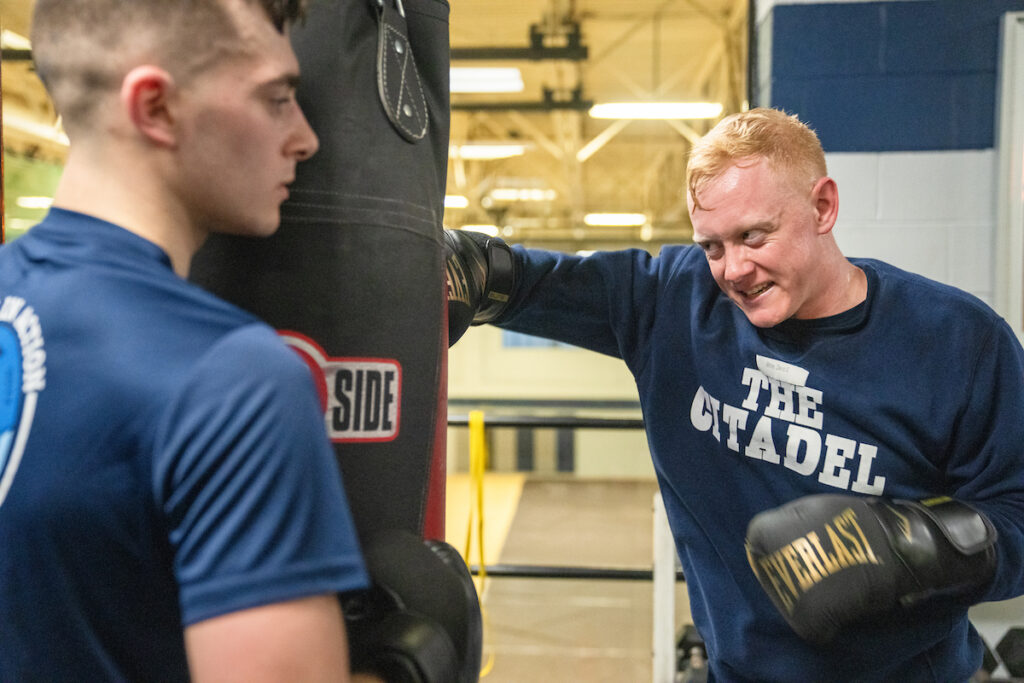
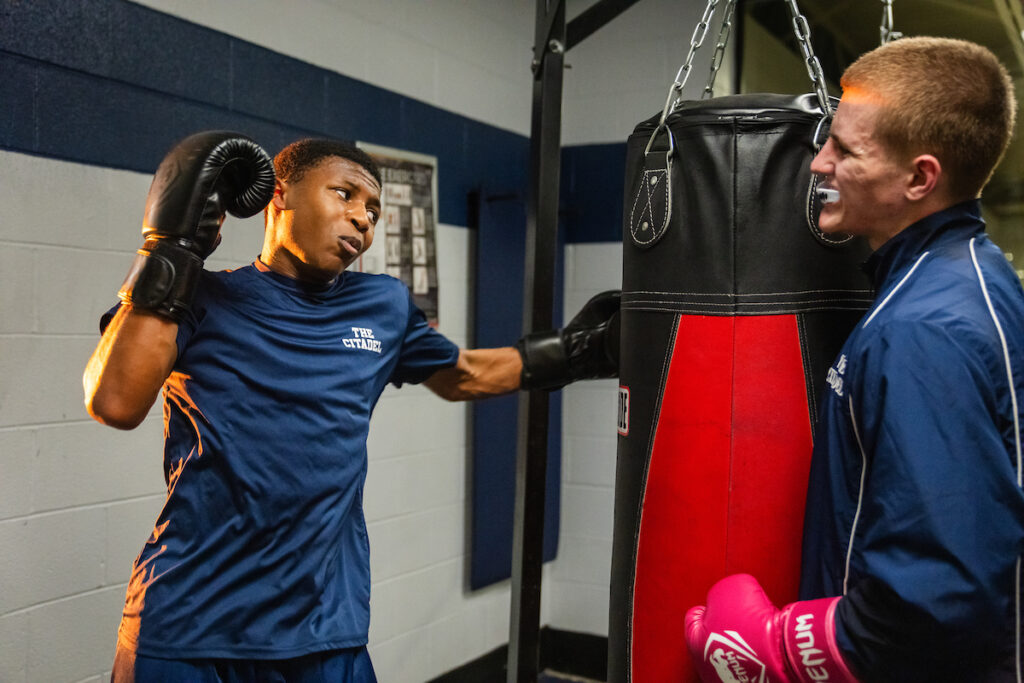
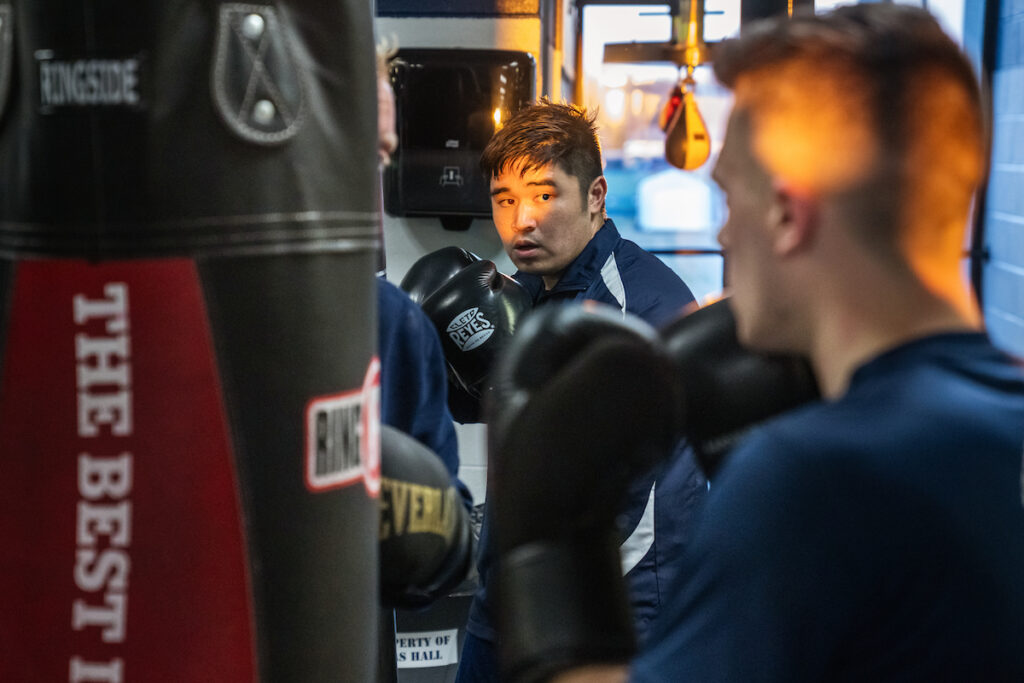
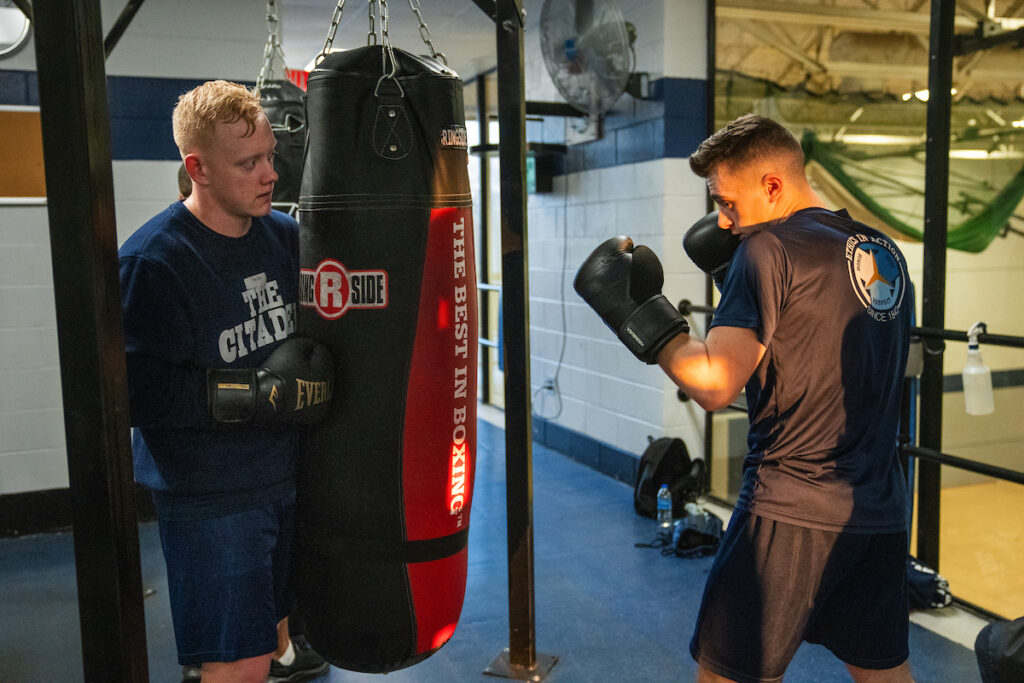

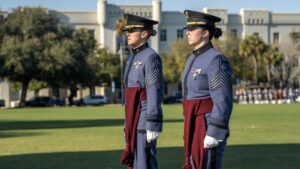 Prestigious Cincinnati and MacArthur awards presented to Citadel cadets
Prestigious Cincinnati and MacArthur awards presented to Citadel cadets Looking ahead to the major events of 2026-27
Looking ahead to the major events of 2026-27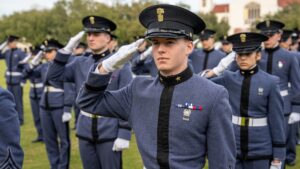 Photos from campus: January in review
Photos from campus: January in review


